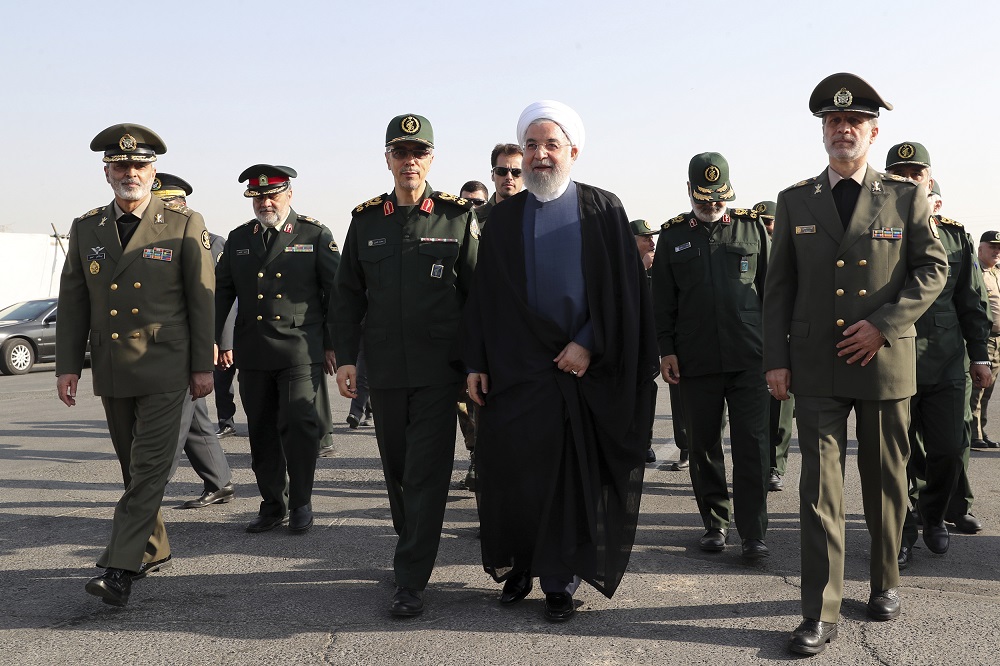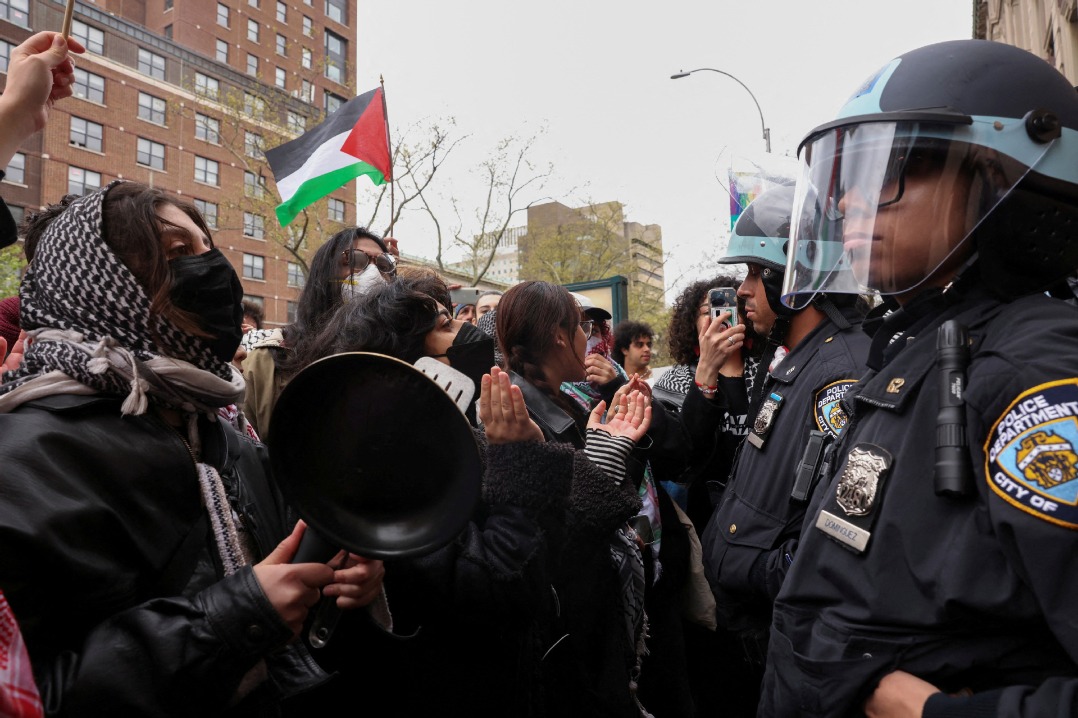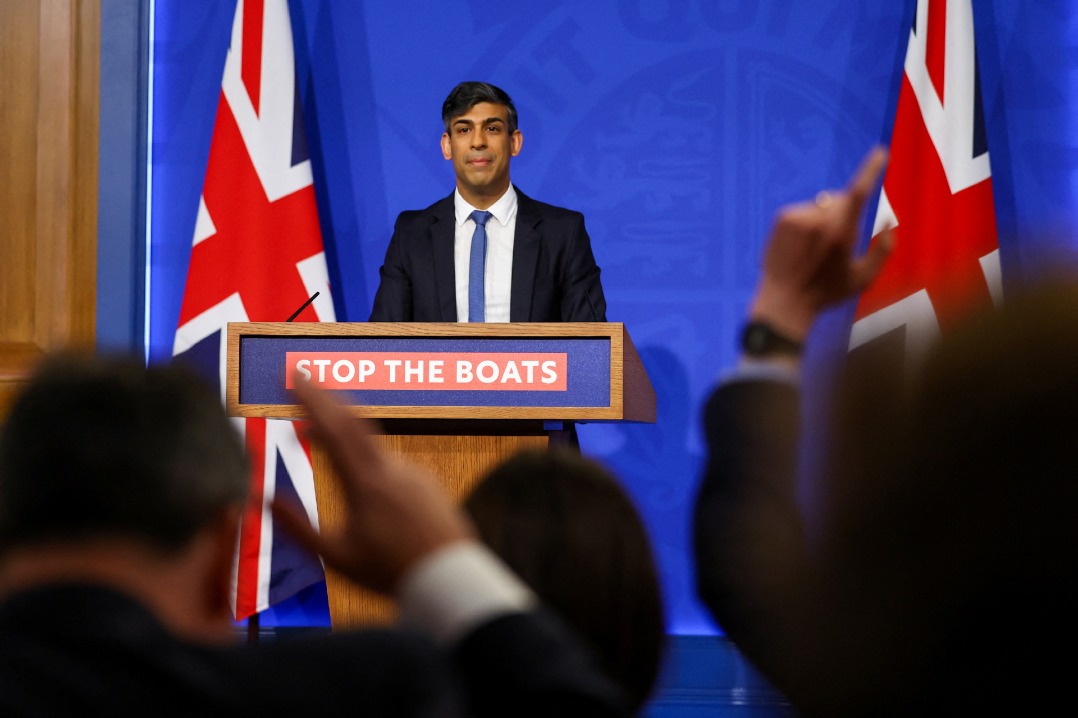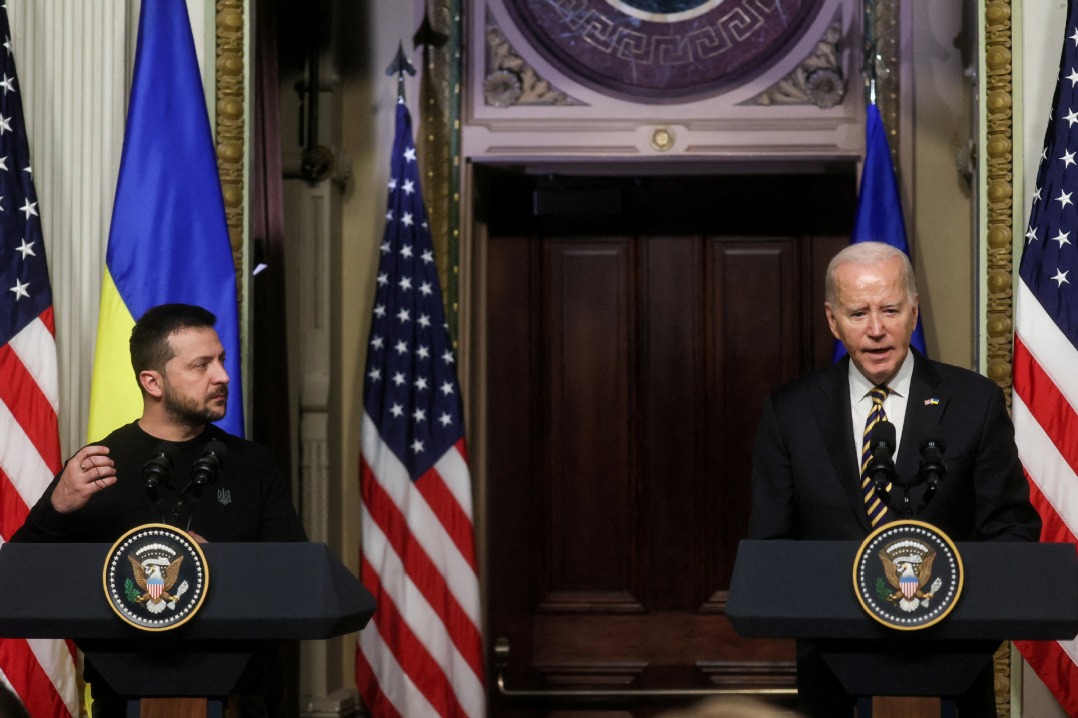Iran vows to lead Gulf security as tensions rise
China Daily | Updated: 2019-09-23 09:37

TEHERAN - Iranian President Hassan Rouhani said on Sunday that his country should lead regional security in the strategic Persian Gulf and criticized the presence of foreign forces, as the country's nuclear deal with world powers appears near collapse and the United States deployed more troops to assist its Arab allies.
The US has said Iran is behind a series of attacks on the region's energy infrastructure, including a major drone-and-missile hit on Saudi Arabia's oil industry that shook global energy markets. Iran has denied the allegations and said any retaliatory strikes from the US or Saudi Arabia will lead to "all-out war".
Speaking during a military parade, Rouhani warned that the presence of foreign forces in the Persian Gulf region could cause problems for the world's "energy security".
He said that Iran extends its "hand of friendship and brotherhood" toward regional nations for overseeing security in the Persian Gulf and its narrowest point, the Strait of Hormuz, where one-fifth of global oil exports passes.
Along with boosting troops and equipment levels in Saudi Arabia and the United Arab Emirates, the US is leading a maritime coalition, which includes the United Arab Emirates, Saudi Arabia, Bahrain, the United Kingdom and Australia, to secure the area's waterways and vital oil trade routes.
The military parade marked the 39th anniversary of the start of the eight-year war with Iraq that began when former Iraqi leader Saddam Hussein invaded Iran in 1980.
Similar parades were held in many major cities across Iran including the port city of Bandar Abbas near the Strait of Hormuz.
State TV showed scores of Iranian fast-attack boats, as well as air defense and other military equipment. It also carried images of Iranian Revolutionary Guard naval forces rappelling down the side of a sailing ship.
The US navy has often complained about Guard fast boats and naval forces harassing shipping in the Gulf.
Tensions escalated between arch-foes Iran and the US after last weekend's attacks on Saudi energy giant Aramco's Abqaiq processing plant and Khurais oilfield halved the kingdom's oil output.
Yemen's Houthi rebels have claimed responsibility for the strikes, but the US said it had concluded the attacks involved cruise missiles from Iran and amounted to "an act of war".
US sends more troops
Washington approved the deployment of troops to Saudi Arabia at "the kingdom's request", US Defense Secretary Mark Esper said, noting the forces would be "defensive in nature" and focused on air and missile defenses.
The commander of the paramilitary Revolutionary Guard, General Hossein Salami, said on Saturday that Iran was "ready for any type of scenario".
"Whoever wants their land to become the main battlefield, go ahead," he told a news conference in Teheran.
"We will never allow any war to encroach upon Iran's territory.
"We hope that they don't make a strategic mistake", he said.
Saudi Arabia, which has been bogged down in a five-year war across its southern border in Yemen, has said Iran "unquestionably sponsored" the attacks.
Riyadh said the weapons used in the attacks were Iranian-made, but it has stopped short of directly blaming its regional rival.
Iran has long sought the evacuation of Western and US forces from Arab Gulf countries, seeing it as a potential threat to the Persian nation.
Rouhani added on Sunday that he will offer a regional peace plan during his visit to the United Nations General Assembly this week.
Fears of a wider regional conflagration have grown, as tensions between Iran and the US remain high over Teheran's failing 2015 nuclear deal with world powers. Recently, Iran has broken the deal's limits on enrichment, uranium stockpiles and the use of advanced centrifuges, as it seeks to pressure Europe to offer it a way to sell its crude oil on the international market despite US sanctions.
US President Donald Trump unilaterally withdrew the US from the deal over a year ago, and reimposed crippling sanctions on Iran.
Agencies























